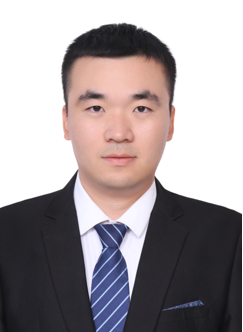
井冈山,教授/博士生导师,弘深优秀学者,国家级青年人才,太阳集团电子游戏学术委员会委员。
个人主页:www.jinglab.net
教育背景:
2019-2021 北卡罗来纳州立大学,电气与计算机工程系(ECE),博士后
2018-2019 俄亥俄州立大学,机械与航空工程系(MAE),博士后
2016-2017 香港理工大学,应用数学系(AMA),助理研究员
2012-2018 西安电子科技大学,控制理论与控制工程,工学博士
2008-2012 宁夏大学,数学与应用数学,理学学士
专业领域:
网络化系统分布式控制,大规模问题优化与强化学习
主要研究方向:
目前主要关注于针对大规模网络化系统(多智能体系统)开发计算复杂度低、灵活性高、可以有效实施的分布式控制、优化与机器学习算法。具体研究的问题包括分布式强化学习、多机器人刚性编队控制、传感器网络定位、分布式优化等。
学术兼职:
自主无人系统安全与控制国际合作联合实验室(教育部重点),副主任
智慧无人系统重庆市重点实验室,副主任
国际期刊Journal of Automation and Intelligence,编辑部主任
中国自动化学会可信控制系统专委会,副秘书长
中国自动化学会预测控制与智能决策专委会,委员
美国《数学评论》(Mathematical Reviews),评论员
担任20余个国际期刊审稿人,5个国际会议审稿人
科研情况简介:
长期关注多智能体系统的分析、控制、优化、与机器学习。首次提出角度刚性理论(angle rigidity theory),将其应用于编队控制以及传感器网络定位问题,从而在传感器测度低廉的情况下解决协同控制与优化问题。该工作被国际上领域内诸多顶尖团队跟进并扩展。在俄亥俄州立大学做博士后期间以主要参与人负责由美国国家航空航天局(NASA)资助的火星着陆项目“Optimized Entry and Powered Descent Guidance for Precision Planetary Landing”,设计出一套针对大规模非凸优化问题的ADMM算法。在北卡罗来纳州立大学做博士后期间负责美国NSF项目“Data-Driven Reinforcement Learning Control of Large CPS Networks using Multi-Stage Hierarchical Decompositions”,开发出一套适用于大规模系统的分布式强化学习算法。
科研项目:
l “基于图聚类的大规模网络化系统分布式强化学习与控制”,国家自然科学基金(青年项目)
l “灵巧作业臂-手机器人技能学习与自主发育研究”,国家重点研发计划(子课题负责人)
招生信息:
本课题组与国内外著名高校(北京大学、普渡大学、北卡罗来那州立大学等)学者长期保持紧密合作。诚挚邀请对我们工作感兴趣的青年教师与员工加入!也非常欢迎各类学术交流讨论。
硕士生招生主要面向有机器人相关经验、对算法及硬件均感兴趣的同学。博士生以及未来有计划读博的硕士生招生主要面向数学能力强、擅长理论分析的同学,详细招生信息请关注本人个人网站。
申请读硕士和博士的同学请附上本科成绩单,申请博士后请附上3篇代表作。
本课题组将给予加入的员工和博士后在参加海内外学术会议、奖助学金以及工作薪酬上最大力度的支持。
代表性成果:
期刊论文(选录)
[J1]. G. Jing, H. Bai, J. George, A. Chakrabortty, P. K. Sharma. Asynchronous distributed reinforcement learning for LQR control via zeroth-order block coordinate descent. IEEE Transactions on Automatic Control (full paper). 2024, DOI: 10.1109/TAC.2024.3386061.
[J2]. G. Jing, H. Bai, J. George, A. Chakrabortty, P. K. Sharma. Distributed multi-agent reinforcement learning based on graph-induced local value functions. IEEE Transactions on Automatic Control (full paper). 2024, DOI: 10.1109/TAC.2024.3375248.
[J3]. G. Jing, C. Wan, R. Dai, and M. Mehran, “Design and Transformation Control of Triangulated Origami Tessellation: A Network Perspective”, IEEE Transactions on Network Science and Engineering, vol. 11, no. 1, pp. 635-647, 2023.
[J4]. G. Jing, H. Bai, J. George and A. Chakrabortty, “Model-free optimal control of linear multi-agent systems via decomposition and hierarchical approximation”, IEEE Transactions on Control of Network Systems, vol. 8, no. 3, pp. 1069-1081, 2021.
[J5]. G. Jing, C. Wan, and R. Dai, “Angle-based sensor network localization,” IEEE Transactions on Automatic Control (full paper), vol. 67, no. 2, pp. 840-855, 2021.
[J6]. G. Jing and L. Wang, “Multi-agent flocking with angle-based formation shape control,” IEEE Transactions on Automatic Control. 2019, 65(2): 817-823.
[J7]. G. Jing, G. Zhang, H. W. J. Lee, and L. Wang, “Angle-based shape determination theory of planar graphs with application to formation stabilization,” Automatica (regular paper), vol. 105, pp. 117-129, 2019.
[J8]. G. Jing, G. Zhang, H. W. J. Lee, and L. Wang, “Weak rigidity theory and its application to formation stabilization,” SIAM Journal on Control and Optimization, vol. 56, no. 3, pp. 2248-2273, 2018.
会议论文(选录)
[C1]. G. Jing, H. Bai, J. George and A. Chakrabortty, “Distributed cooperative multi-agent reinforcement learning with directed coordination graph”, IEEE American Control Conference, Atlanta, USA, Jun. 2022.
[C2]. G. Jing, H. Bai, J. George and A. Chakrabortty, “Learning distributed stabilizing controllers for multi-agent systems”, IEEE Conference on Decision and Control, Austin, USA, Dec. 2021.
[C3]. G. Jing, H. Bai, J. George and A. Chakrabortty, “Decomposability and parallel computation of multi-agent LQR”, IEEE American Control Conference, New Orleans, USA, May 2021.
[C4]. G. Jing, H. Bai, J. George and A. Chakrabortty, “Model-free reinforcement learning of minimal-cost variance control,” IEEE Conference on Decision and Control, Jeju Island, Republic of Korea, Dec. 2020.
[C5]. G. Jing, C. Wan, and R. Dai, “Angle fixability and angle-based network localization,” IEEE Conference on Decision and Control, pp. 7899-7904, Nice, France, Dec. 2019.
联系方式:
jinggangshan@cqu.edu.cn
太阳成集团虎溪校区信息技术大楼A414


